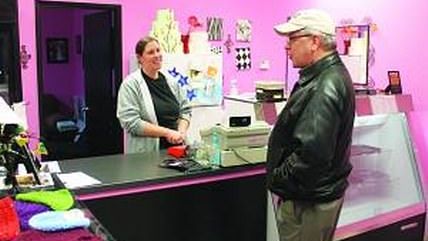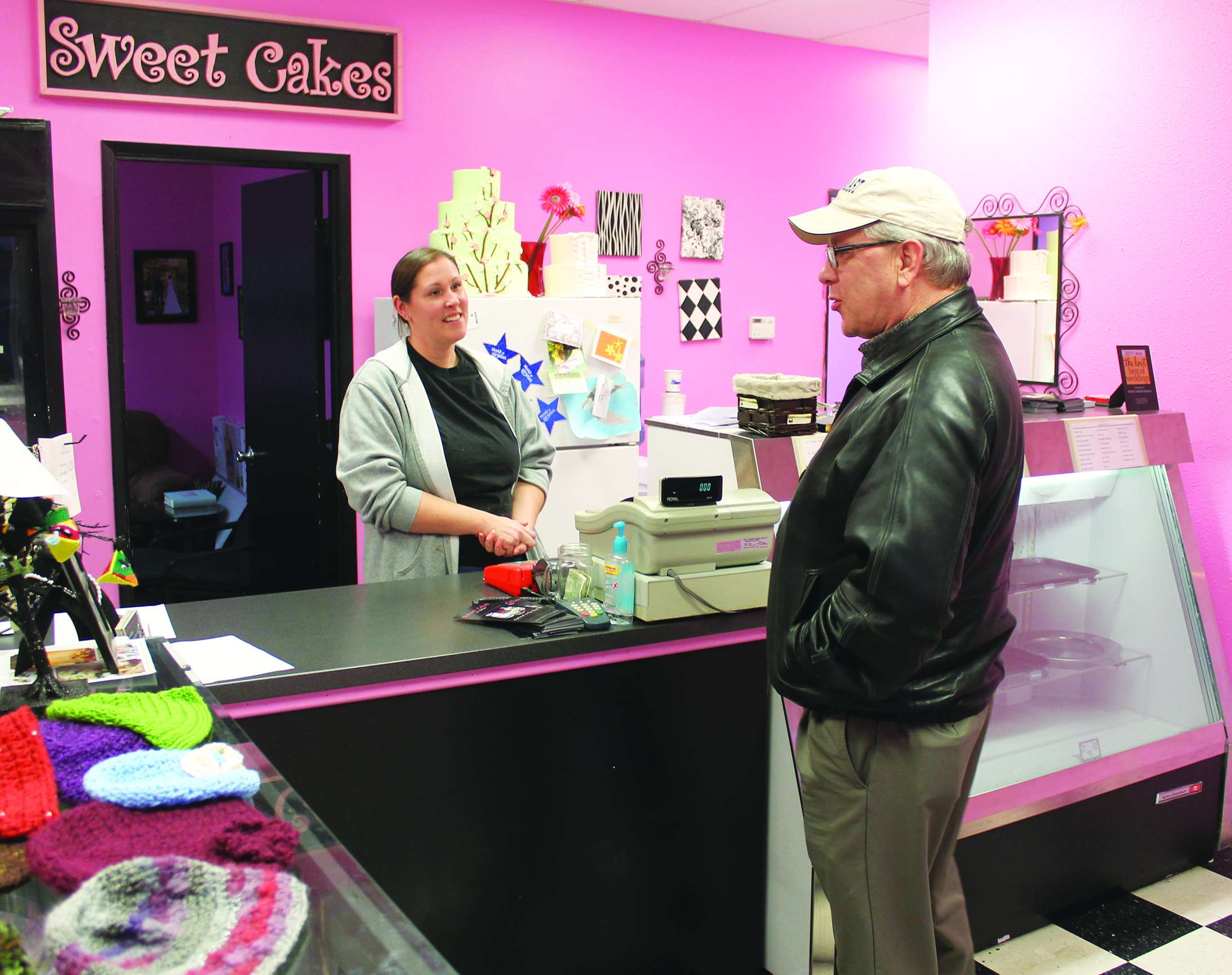Battlefield: Cake
The rapidly evolving fight over gay marriage, anti-discrimination laws, and free speech


Gay couples across America are planning their nuptials, ordering wedding invitations, renting out reception halls, choosing color schemes, arguing over seating charts, and deciding how many tiers their wedding cakes should have. Some, though, have encountered a barrier: Not every wedding-focused business is interested in celebrating their love.
The photogenic wedding cake, with its instantly recognizable toppers in the shapes of brides and grooms, has become the go-to symbol for this latest front in the culture war, though florists, photographers, and wedding venues have also turned same-sex couples away and wound up embroiled in legal battles as a result. Some people, often for religious reasons, do not want to provide their wedding services to gay couples and believe doing so is the equivalent of expressing approval for these relationships. They argue that their rights to free speech and practice of their religion would be compromised if ordered to do so.
Long ago, it was commonplace to see signs that declared, "We reserve the right to refuse business to anybody" in retail businesses. But the days when those placards actually meant anything are long gone. States have anti-discrimination laws and public accommodation regulations that tell businesses when they're allowed to turn customers away- or, more accurately, when they are not.
In Colorado, where it is actually against the law to post one of those signs these days, Jack Phillips, the owner of Masterpiece Cakeshop in Lakewood, declined to offer his services to a gay couple due to his religious objections to same-sex marriage. The couple filed a complaint and Colorado's Human Rights Commission declared in 2014 that Phillips violated the state's anti-discrimination policies. Not only was he ordered to change his ways, but the commission demanded he submit quarterly reports to show how he had altered his practices and trained his employees for the next two years to make sure he complied.
In Gresham, Oregon, Sweet Cakes by Melissa declined to prepare a wedding cake for a lesbian couple. Like Phillips, the bakery's owners, Melissa and Aaron Klein, felt that participating in a same-sex wedding would go against their religious beliefs. The Oregon Bureau of Labor and Industries ruled in February that the owners had engaged in discrimination in violation of state law. In April it further recommended the Kleins be fined $135,000 for the emotional damages caused by failing to serve the couple. The owners closed Sweet Cakes at the end of 2013 amid the battle and now operate out of their home. (All this transpired, incidentally, before the state itself started legally recognizing gay marriages.)
In March 2014, a Christian named Bill Jack attempted to flip the script by trying-and failing-to order a cake from a Colorado bakery highlighting his position that homosexuality is a sin. His protest illustrates the tangled interactions between speech, belief, commerce, and anti-discrimination laws.
Helping untangle the mess is Eugene Volokh, a law professor at the University of California, Los Angeles and legal blogger at The Washington Post. Volokh explains that a cake, in and of itself, has not typically been seen by the law as an expression of speech. Therefore a baker doesn't have a precedent to claim that he or she is being forced to express a statement in support of gay marriage by stacking baked goods and covering them with fondant. Volokh compares wedding cakes to architecture, and not just because both feature carefully engineered towers. An architect may desire to make a "statement" in the shape of a building, but a building is not what Volokh calls an "established genre of communications." Thus, a city's planning department can forbid a brutalist, cement fortress in the middle of a quaint neighborhood of bungalows without violating the Constitution.
But putting a sign on one of those houses changes the rules, as does adding text on a cake. When Azucar Bakery refused to add Jack's anti-gay message to a cake, Jack filed a complaint to the state, accusing them of violating the same anti-discrimination ordinances that snagged Masterpiece Cakeshop. In this case, Jack claims he was discriminated against due to his creed. Volokh thinks Jack doesn't have much of a case.
"What he asked for didn't matter that much," Volokh says. "If they said no because he was religious, then that would be religious discrimination." But the bakery didn't turn Jack away because he was Christian. They were willing to make him a cake in whatever shape he wanted. They just refused to add the anti-gay text to the top of it. Whether the text came right from the Bible probably doesn't matter. "There's no law against viewpoint discrimination, at least not in Colorado," Volokh says. By contrast, the other bakers refused to make a cake at all.
Volokh's explanation proved to be Colorado's response as well. A state agency ruled in April that Azucar Bakery, unlike Masterpiece Cakeshop, did not engage in discrimination for refusing to add the demanded message to the cake.
These battles have led to a new push for more state-level religious freedom laws, so bakers and florists who oppose same-sex marriage can say no to gay couples legally. The passage of such a law in Indiana provoked significant anger that ended up directed at, of all places, a small-town pizza parlor named Memories Pizza after its owners told a media outlet it would not provide pizzas for a gay wedding. No gay couple had actually asked Memories Pizza to do so, but they were nevertheless targeted with criticism and threats from across the country, followed by a rush of donations from supporters. Indiana's governor and legislature subsequently changed the law to make it clear that it wasn't intended to allow businesses to discriminate against customers.
What frequently gets ignored in these political battles-aside from the concept that people should have the right to associate (or not associate) with whomever they choose-is whether the law is the best tool to resolve these conflicts. Many wedding businesses are falling all over themselves to compete in this new and potentially profitable market. There is little indication that gay couples actually need the government to force resistant religious bakers to fire up their mixers in order to have the wedding of their dreams.
Scott Shackford (scott.shackford@reason.com) is an associate editor at reason.com.
This article originally appeared in print under the headline "Battlefield: Cake."


Show Comments (256)